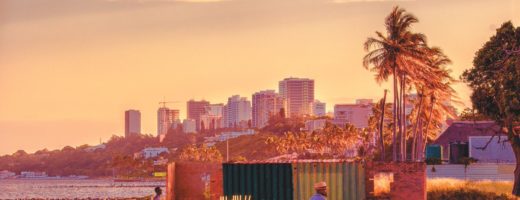Introduction: Mozambique is a large country with a small LGBT representation. Despite the absence of aggressive anti-gay action by authorities, gay citizens keep their secrets and make no showing of Pride in public. A single organization called LAMBDA quietly goes about its business of health, sexual education and human rights; it also presses to become a registered NGO. In June 2015, homosexuality was decriminalized.
Mozambique was colonized by Portugal in 1505 and became independent on June 25, 1975. A civil war followed (1975-92) when an estimated one million Mozambicans perished and 1.7 million took refuge in neighboring states. By mid-1995 the refugees had returned as part of the largest repatriation witnessed in sub-Saharan Africa. Mozambique is an LEDC (less economically developed country). Homosexuality is not mentioned in Mozambican law books, which only penalize “practices against nature”. Mozambican society “does not act peacefully towards homosexuality”, leading to discrimination in the family, at school and at work. But compared to most Southern and East African nations, homosexuality is still treated light-handedly in Mozambique.

Mozambique: the Capital City of Maputo
Maputo is the capital and largest city of Mozambique. A port on the Indian Ocean with its economy centered around the harbor. It has a population of about 1,300,000, but the actual population is higher because of slums and other unofficial settlements. Coal, cotton, sugar, chromite, sisal, copra, and hardwood are the chief exports. The
Mozambique: Pemba Area
Pemba is a port city in northeast Mozambique. It was founded by the Niassa Company in 1904 as Porto Amélia, after a queen of Portugal. The city is renowned for its Portuguese colonial architecture. It was renamed Pemba at the end of Portuguese rule, in 1975. The city’s inhabitants are primarily Makondes, Macuas and Mwanis.
Mozambique: Ilha Mozambique, the Forgotten Former Capital
Ilha de Mocambique is the forgotten former capitol town Mozambique with its mixture of African, Arab and colonial influences and historical dependence on trade. It was an important trading post as early as the 10th century, when merchant ships from as far afield as India and Arabia traded slaves, ivory, gold and spices along the
Mozambique: Traveling Across to Malawi
Crossing east to west in northern Mozambique brings the intrepid traveler to the border with Malawi. Within Mozambique there are few main east-west highways and only a limited railway. Part of the reason for inadequate international roads in southern Africa is that most of these countries were occupied by European powers that wanted to keep


